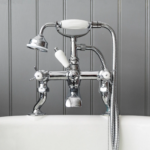People are constantly concerned about storing their boats and RVs, regardless of the season. The winter season’s especially problematic for homeowners who want these more oversized vessels/vehicles to stay functional even after being stored for a couple of months. From spoiled batteries and mildew growth to creeping rodents and sneaking bandits – storage facilities for boats and RVs are marked by many significant problems. So, how to ensure that your boats and RVs are functional when you embark upon some new exciting adventures for the springtime? We’ve compiled a bundle of suggestions here to help you realize how to store your vessels/vehicles effectively to make them last ’till summertime next year.
Tips For Storing Boats & RVs This Winter
Many citizens share the passion for owning bigger vessels/vehicles. Statistics show that 10% of American households have boats while one-third of adults have often gone boating. Similarly, more than 9% of American households have RVs, while millions of families consider purchasing one! However, it becomes an extensive investment when you’ve bought a sizable vessel/vehicle for recreational reasons during the pandemic. How to manage secure and off-site storage for your trailer or motorhome? We’ve collected some experts-suggested strategies here to help you prepare these objects for storage (unless you live in boats & RVs permanently). So, here’s how you can store these things for safekeeping in 2022:
- Find storage facilities:
May bigger-vessel/vehicle enthusiasts require off-location storage spaces for these machines. Being the second-most popular city in the Cotton State, Birmingham, AL, often look for external storage areas to keep their boats & RVs. So, we advise using the reliable facilities for boat storage Birmingham AL provides its citizens. These storage spaces are clean, secure, and available both covered and uncovered. They’re designed to fit boats & RVs, and anything 50 feet long! These climate-controlled spaces offer the right humidity/temperature levels for your machines. So, thoroughly investigate your options and have your property stored today.
- Inspect them thoroughly:
Before taking boats & RVs to the storage facility, inspect your property thoroughly. Drive the object for one last time to ensure everything is working correctly. Is it performing well? Does the engine need repair? Store that thing in its pristine condition to avoid any problem when you bring it out in a few months. Remove electronic devices from the machine to store them separately since they need different storage requirements. Furthermore, you can call experts to inspect your vessel/vehicle.
- Bring everything out:
Don’t store your vessels/vehicles without emptying everything! Don’t leave anything inside boats & RVs for winter storage. Many owners often leave soaps, toothbrushes, and related objects inside. It doesn’t seem smart to leave your things to crack and freeze in January. Your medicine cabinet may become an ugly mess after you retrieve your vessel/vehicle in springtime. Emptying boats & RVs can ensure you haven’t forgotten anything important inside your property. So, bring everything out.
- Visit them often?
How often can you visit your boats & RVs? Homeowners often have to retrieve essential items from their parked vessels/vehicles, so we suggest finding storage locations near your current residence. Choose a storage facility that provides 24/7 access to your property and continuous surveillance to ensure nobody else can touch your belongings. Also, don’t forget to keep checking your boats & RVs after having them parked. Lock them properly to prevent robbers from getting inside.
- Lock them properly:
Unless you’ve planned to reside in your vessels/vehicles, robbers may easily target these objects. So, homeowners must safeguard their boats & RVs against potential burglars. People often neglect how RV thefts have become common today. Even storage facilities aren’t immune from the criminals who wish to ransack the premises and steal people’s parked trailers. That’s why you must bring your separate heavy-duty lock while storing your boats & RVs to keep criminal elements away.
- Vacuum the interior:
Ensure that your vessel/vehicle’s been cleaned before it’s stored for winter. Is there any leftover food inside the property? It would be best to clean every crumb from the interior to prevent an insect from crawling inside. Even the tiniest amounts of food are invitations for critters! So, vacuum the interior properly and make this cleansing as thorough as possible. Don’t leave your boats & RVs as beacons for every animal in the neighborhood. If you have some time, clean the exterior too.
- Plug open holes:
Are you worried about bugs in your camper? Many homeowners have rodents, insects, and animals residing in their vessels/vehicles discovered when owners take them out for a drive! These pests like to turn open holes into winter abodes. So, we suggest covering every small opening around boats & RVs to prevent vermin from getting too comfortable with your property. Plug vents/pipes properly to keep the bugs away. That’s how you can safely submit your trailer for winter storage this year.
- Check liquid levels:
Remember to check the levels of liquids in your boats & RVs. Replace any liquid that can break down after being stored for a time. Replace filters and –we’ll clarify later – empty water tanks. We also suggest getting some all-weather covers when you have parked the vessel/vehicle outdoors. This cover should be custom-made for your machine to stop moisture from getting trapped. Hence, invest wisely in stuff like that.
- Use chock blocks:
You don’t want your boats and RVs to move while parked now, do you? That’s why we suggest using chock blocks to help vessels/vehicles remain steady in the storage facility. They’re made of stuff like wood, rubber, plastic, or polyurethane to stop accidental movements in vehicles. These objects keep your trailers secure and miles away from accidents. We advise against using a parking brake since it may damage the brake pad in the future. Use chock blocks and keep your property well-secured.
- Protect the plumbing:
Don’t forget that water can seriously damage your boats & RVs during the months of winter. We strongly suggest emptying the tanks and pouring some antifreeze in them. If you can’t do this alone, don’t hesitate to contact expert mechanics for help. That’s how you can safely safeguard the plumbing and store your property in a storage facility. Moreover, cover the ties of your camper because the sun ruins their quality. Don’t let sunlight make the tires useless after bringing the RV out again.
Conclusion
After the emergence of the coronavirus pandemic, boats and RVs became insanely demanded by people in the United States. Their purchases exploded because homeowners found these vessels/vehicles great ways for traveling while living in isolation from others during an ongoing pandemic. However, winter has arrived, and people are now preparing to store their boats & RVs for a couple of months. How must they store their precious possessions now? Some simple tactics involve cleaning the exterior and the interior of the vessel/vehicles before submitting them for storage. Keep rodents and animals away from boats & RVs. Also, don’t forget to check the tires and inflate them to lessen storage costs during winter.






